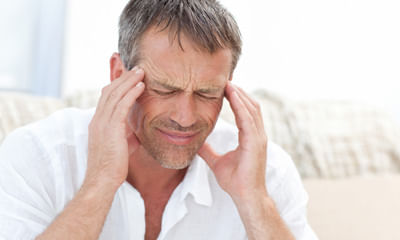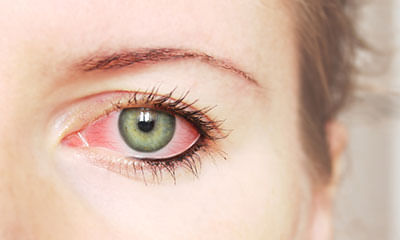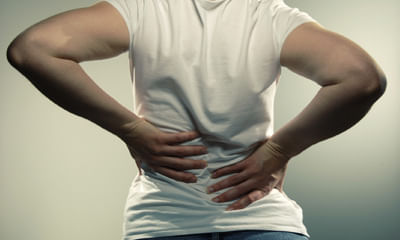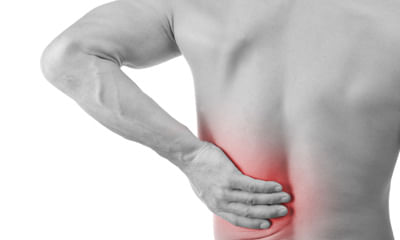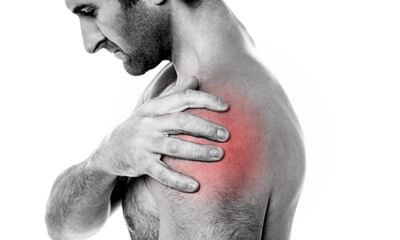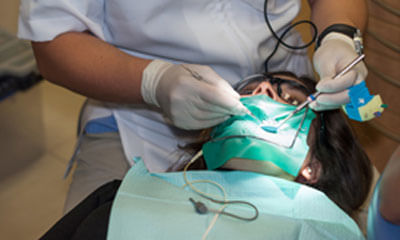Medicine For Musculoskeletal Disorders
I am 29 year old, I have a problem when I wake up in morning I will have mild headache due to which my whole day get imp ...
Ask Free Question
Dear lybrate-user from hyderabad, looks like you have morning headache that impacts your whole day. Conditions that can be associated with morning headache can be anxiety disorders, depressive disorders, sleep-related breathing disorders, hypertension, musculoskeletal diseases, use of anxiolytic medication and heavy alcohol consumption. Kindly consult me privately so that we can discuss your problem in detail. Thank you.
Hello, I want to know whether I can eat "ibugesic plus" medicine for my eye infection or not? ...
Ask Free Question
"ibugesic plus is not antibiotic for eye infection ibugesic plus nf (50/500 mg) tablet is a combination medicine used for the treatment of pain and inflammation associated with musculoskeletal and joint disorders and pain and cramps associated with menstruation.
I am 27 year old male I have back pain for 2 years I used many pain killer medicine but have t get relief. ...
Ask Free Question
Dear lybrate-user Lower back pain is because of so many reasons Starting from simple postural problem to compression at nerve roots One of d most common one is L4-5 disc tear usually seen in young adults But For seeking a relevant advice you need to answer few questions, Has to undergo proper set of specific tests to rule out certain specific disorders. Every case needs a detailed understanding through certain investigations and evaluations. Though rest/ hot fomentation/Physio and few days of muscle relaxants usually works well but 1st diagonosing then treating is always beneficial for complete relief. For more queries can chat privately The good news is - its always treatable if timely addressed Good luck.
Hello Doctor ,my age is 21 years .i am allergic asthma patient from 8 years. And last 3 years have been tingling in my c ...
Ask Free Question
May be it is just a musculoskeletal disorder, or a pleuro-pericardial rub, or just fibromyalgia for which physical examination of patient is required. Investigations like x ray chest PA View, ECG, 2D ECHO, Hemogram, 25 hydroxy vitals D3, along with gastroenterologist consult may help.
I have fibromyalgia from past one year I have treated myself last 1 year but no any effects of medicine I suffering more ...
Ask Free Question
Fibromyalgia is a disorder characterized by widespread musculoskeletal pain accompanied by fatigue, sleep, memory and mood issues. Researchers believe that fibromyalgia amplifies painful sensations by affecting the way your brain processes pain signals. Symptoms sometimes begin after a physical trauma, surgery, infection or significant psychological stress. In other cases, symptoms gradually accumulate over time with no single triggering event. Many people who have fibromyalgia also have tension headaches, temporomandibular joint (TMJ) disorders, irritable bowel syndrome, anxiety and depression. While there is no cure for fibromyalgia, a variety of medications can help control symptoms. Exercise, relaxation and stress-reduction measures also may help. Symptoms Symptoms of fibromyalgia include: •Widespread pain. The pain associated with fibromyalgia often is described as a constant dull ache that has lasted for at least three months. To be considered widespread, the pain must occur on both sides of your body and above and below your waist. •Fatigue. People with fibromyalgia often awaken tired, even though they report sleeping for long periods of time. Sleep is often disrupted by pain, and many patients with fibromyalgia have other sleep disorders, such as restless legs syndrome and sleep apnea. •Cognitive difficulties. A symptom commonly referred to as "fibro fog" impairs the ability to focus, pay attention and concentrate on mental tasks. Fibromyalgia often co-exists with other painful conditions, such as: •Irritable bowel syndrome •Migraine and other types of headaches •Interstitial cystitis or painful bladder syndrome •Temporomandibular joint disorders Causes Doctors don't know what causes fibromyalgia, but it most likely involves a variety of factors working together. These may include: •Genetics. Because fibromyalgia tends to run in families, there may be certain genetic mutations that may make you more susceptible to developing the disorder. •Infections. Some illnesses appear to trigger or aggravate fibromyalgia. •Physical or emotional trauma. Fibromyalgia can sometimes be triggered by a physical trauma, such as a car accident. Psychological stress may also trigger the condition. Why does it hurt? Researchers believe repeated nerve stimulation causes the brains of people with fibromyalgia to change. This change involves an abnormal increase in levels of certain chemicals in the brain that signal pain (neurotransmitters). In addition, the brain's pain receptors seem to develop a sort of memory of the pain and become more sensitive, meaning they can overreact to pain signals. Risk factors Risk factors for fibromyalgia include: •Your sex. Fibromyalgia is diagnosed more often in women than in men. •Family history. You may be more likely to develop fibromyalgia if a relative also has the condition. •Other disorders. If you have osteoarthritis, rheumatoid arthritis or lupus, you may be more likely to develop fibromyalgia. Complications The pain and lack of sleep associated with fibromyalgia can interfere with your ability to function at home or on the job. The frustration of dealing with an often-misunderstood condition also can result in depression and health-related anxiety. Diagnosis In the past, doctors would check 18 specific points on a person's body to see how many of them were painful when pressed firmly. Newer guidelines don't require a tender point exam. Instead, a fibromyalgia diagnosis can be made if a person has had widespread pain for more than three months — with no underlying medical condition that could cause the pain. Blood tests While there is no lab test to confirm a diagnosis of fibromyalgia, your doctor may want to rule out other conditions that may have similar symptoms. Blood tests may include: •Complete blood count •Erythrocyte sedimentation rate •Cyclic citrullinated peptide test •Rheumatoid factor •Thyroid function tests Treatment In general, treatments for fibromyalgia include both medication and self-care. The emphasis is on minimizing symptoms and improving general health. No one treatment works for all symptoms. Medications Medications can help reduce the pain of fibromyalgia and improve sleep. Common choices include: •Pain relievers. Over-the-counter pain relievers such as acetaminophen (Tylenol, others), ibuprofen (Advil, Motrin IB, others) or naproxen sodium (Aleve, others) may be helpful. Your doctor might suggest a prescription pain reliever such as tramadol (Ultram). Narcotics are not advised, because they can lead to dependence and may even worsen the pain over time. •Antidepressants. Duloxetine (Cymbalta) and milnacipran (Savella) may help ease the pain and fatigue associated with fibromyalgia. Your doctor may prescribe amitriptyline or the muscle relaxant cyclobenzaprine to help promote sleep. •Anti-seizure drugs. Medications designed to treat epilepsy are often useful in reducing certain types of pain. Gabapentin (Neurontin) is sometimes helpful in reducing fibromyalgia symptoms, while pregabalin (Lyrica) was the first drug approved by the Food and Drug Administration to treat fibromyalgia. Therapy A variety of different therapies can help reduce the effect that fibromyalgia has on your body and your life. Examples include: •Physical therapy. A physical therapist can teach you exercises that will improve your strength, flexibility and stamina. Water-based exercises might be particularly helpful. •Occupational therapy. An occupational therapist can help you make adjustments to your work area or the way you perform certain tasks that will cause less stress on your body. •Counseling. Talking with a counselor can help strengthen your belief in your abilities and teach you strategies for dealing with stressful situations.
My age is 22 I have slip disk my disk dislocated into 6 mm back so I have heavy pain when I bend or doing any work and l ...
Ask Free Question
Some days do full bad rest after this don't sitting longer time its do bed effect on back pain, sitting but short time like 1-2 hour then you do rest like walking either 10-15 min. On bad you can use heating paid at two time in a day and some exercise also do you can take physiotherapy also some days like 10-15 day a after all this you feel batter you can do all your work but Physio. Live care fully live not sitting long time between a week do full rest all this do you u can do yoga also it's batter OK.
I work in front of computer for 7/8 hrs everyday, recently lower back pain started again, please tell me what I do to re ...
Ask Free Question
1. Start with Physiotherapy treatment. 2. Learn spinal exercises. 3. Correct your posture. 4. Don't lift heavy things. 5. Don't sit on floor. 6. Do Hot fermentation twice a day. 7. Apply volini cream before sleeping. 8. Take half kg milk everyday. 9. Take calcium, vitamin D 3 and Methylcobalmine supplement for one month minimum.
I am 56 years old. I am getting right leg pain from down the back till the foot. I had diabetic and b.p .what should I d ...
Ask Free Question
Diabetes is a metabolic disorder which results in increased blood sugar level due to relative or absolute deficiency of insulin. It is more common in those individuals who have a family history of diabetes. In case of Diabetes, there is an increased risk of various musculoskeletal complaints. Pain in legs could be associated with diabetes or may be a separate entity. Kindly provide us your blood sugar levels so that we can guide you further. You can start with Bakson’s Diab Aid Drops. Take 10-15 drops in one fourth cup of water before meals, 3 times a day.
I Have More Leg pain .I can't stand within 15 min continuously. I tried so many medicine but not cured .no idea for me w ...
Ask Free Question
Hello lybrate user leg pain have several causes like can be due to musculoskeletal disorder, neurological problem, vascular problem etc. Firsly you have to rule out reason behind that. If its muscular in origin then you can consult a qualified physio.
I am suffering from left tmj pain from last 4 months and have referred to many dentist and taking medicines from last 4 ...
Ask Free Question
TMJ pain can be due to misalignment (malocclusion) of or trauma to the teeth or jaw, teeth grinding (bruxism), poor posture, stress or anxiety, arthritis and other inflammatory musculoskeletal disorders, orthodontic braces, and excessive gum chewing. the treatment will vary depending on your condition. apply ice pack on the outer region. try some relaxation exercise for jaw muscles. meditation has to be done to reduce stress level. take soft diet n avoid chewing gums. consult a maxillofacial surgeon for complete diagnosis n treatment planning .

